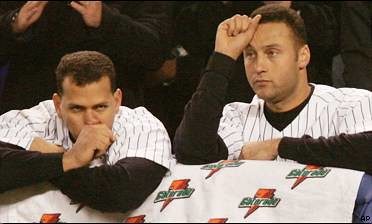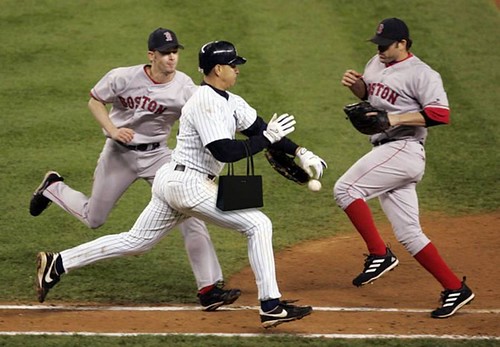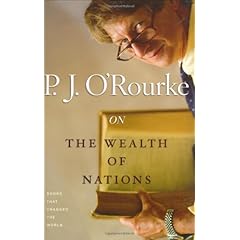After reading Bill Bryson's
Made in America, An Informal History of the English Language in the United States this weekend I will always think of George Washington whenever the word "groggy" is used; the common meaning of the word these days is "dazed and exhausted", but originally meant "drunk, intoxicated", as one might be after imbibing too much of the concoction known as "grog." The drink, a mix of diluted rum and assorted spices, was ordered by Admiral Edward Vernon in 1840 to be served to the Royal Navy instead of straight rum. The name "grog" derives from his nickname, "Old Grog" and while Bryson claims that no one seems to know how he acquired such a moniker, a look in my copy of the
Oxford Dictionary of Word Histories reveals that "Old Grog" comes from Vernon's grogham cloak (grogham being a type of fabric). How then does this relate to the man "first in the heart of his countryman?" Well, perhaps it's obvious by now, but it seems that Vernon himself was widely admired as well. One such admirer was the half-brother of George Washington, namely Lawrence, who named the family plantation Mount Vernon after "Old Grog" himself.
Grog is I suppose a cousin of my favorite sort of words: those derived from proper names, probably the most famous of which is "sandwich" (the 4th Earl of Sandwich). Others include "boycott" (Charles C. Boycott), "bowdlerize" (Thomas Bowdler), "galvanize" (Luigi Galvani), "lynch" (Capt. William Lynch), "sideburns" (Ambrose E. Burnside), and "zeppelin" (Count Ferdinand von Zeppelin). Two more brought to my attention by Bryson are the slightly archaic "bloomer" (Amelia J. Bloomer) and "maverick" (Samuel A. Maverick). I suppose a subclass of such words would be those derived from names of non-existent people, for example one Diedrich Knickerbocker (a creation of Washington Irving), from whose name "knickerbocker" and "knicker" derive.
My favorite word of this type is "gerrymander", which is a combination of the name of Gov. Elbridge Gerry of Massachusetts and of salamander. According to the Oxford Dictionary:
this arose through the supposed similarity between a salamander and the shape of a new voting district on a map drawn up when Governor Gerry was in office (1812)
Not content with just linguistic greatness, Gerry later became Vice-President under James Madison. Apparently his pre-gubernatorial days were notable as well. Via Bryson, as one of the delegates to the Constitutional Convention, Gerry compares a standing army to an erect penis, as both are
an excellent assurance of domestic tranquility, but a dangerous temptation to foreign adventure
A sentiment as true today as it was then.























